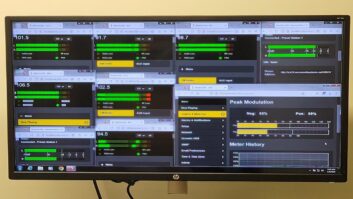One of the traditional benefits of shortwave radio has been that, so long as listeners can acquire or make receivers, programming can be broadcast from distant shores to listeners who might benefit from alternate viewpoints. For governments that want to block such broadcasts, overpowering the transmission frequencies with jamming signals has been the traditional means of response.
Along the demilitarized zone between North Korea and South Korea, however, both sides have used loudspeaker networks to boom audio programming to the other’s citizenry. Under an agreement in 2004, the loudspeaker networks on both sides of the DMZ were dismantled; however, in the wake of the 26 March sinking of a South Korean navy vessel, the South Korean military reportedly is moving to rebuild the loudspeaker network.
South Korea attributes the 26 March sinking of the ROKS Cheonan to a torpedo attack by a North Korean submarine. Forty-six South Korean sailors died in the incident. North Korea has denied responsibility.
North Korean officials have stated that if the loudspeaker broadcasts are resumed, that the North Korean military will attack.
“If South Korea installs new speakers for psychological warfare, we will directly aim at them and open fire to destroy them,” an unnamed North Korean military commander said in a statement, carried by Pyongyang’s official Korean Central News Agency, according to The Korea Times.
Defense Minister Kim Tae-young responded to the threat saying that, South Korea was prepared to retaliate if the loudspeaker network were targeted for attack.
“If the North disrupts our psychological warfare by opening fire at loudspeakers, we will counterattack immediately,” the minister affirmed during a session at the National Assembly, according to The Korea Times.












